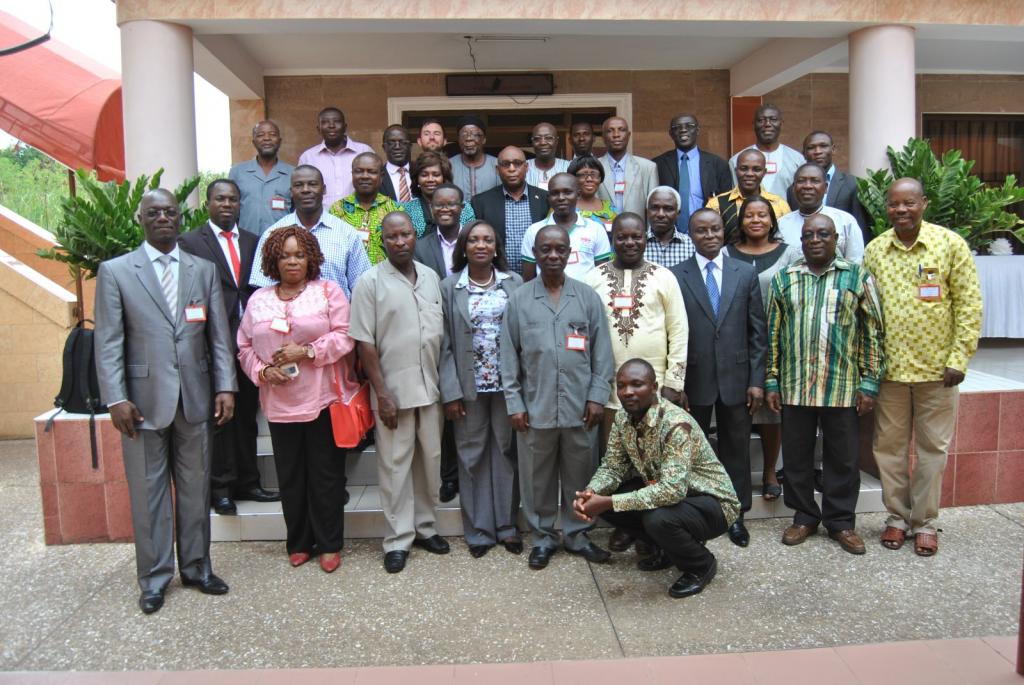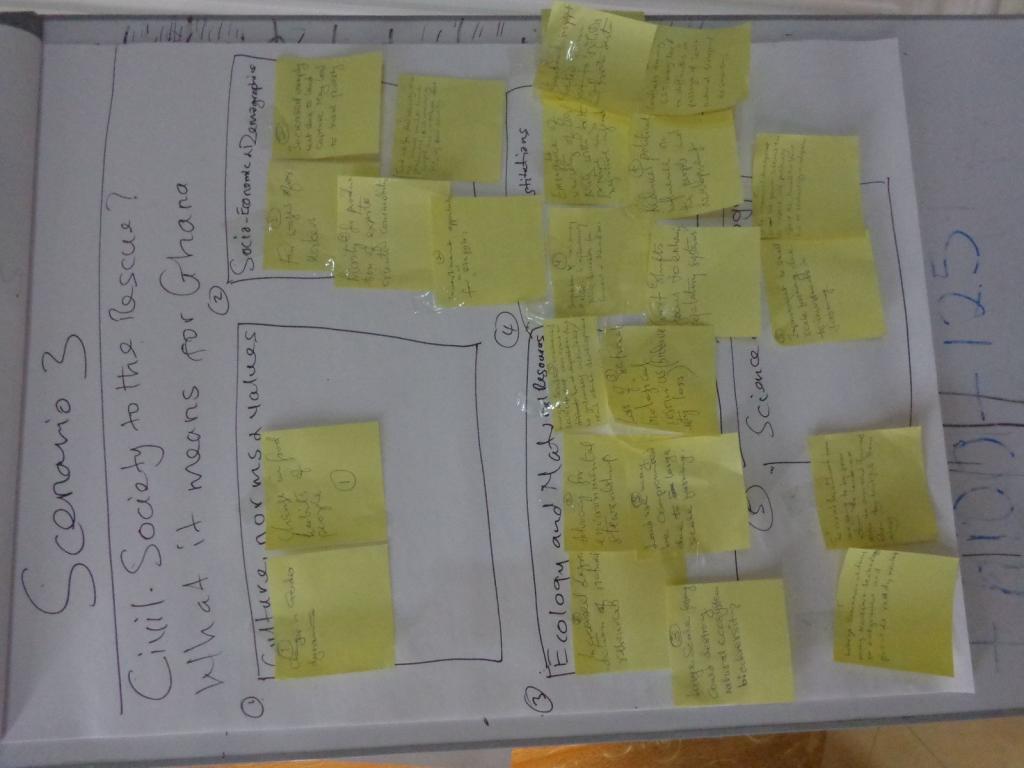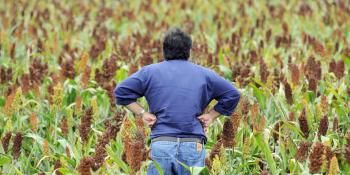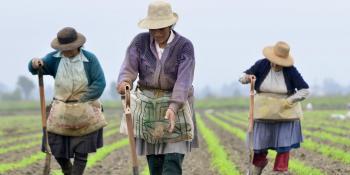Reviewing Ghana's livestock policy with scenarios approach
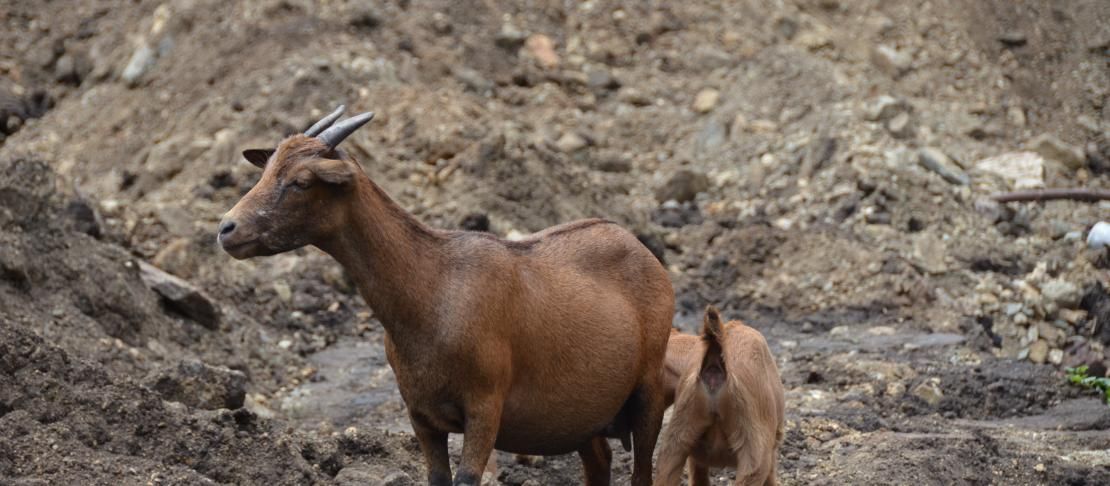
Stakeholders make recommendations viable to improving the robustness of Ghana's livestock policy to future uncertainties.
Learn more about the scenarios approach: Scaling out scenario-guided policy and investment planning
Climate change, socioeconomic and political uncertainties are likely to impact future developments in Ghana’s livestock sector. A review of Ghana’s livestock policy using a scenarios-guided multi-level approach was therefore deemed essential to improve its robustness to future uncertainties.
In the quest to produce a new and robust version of Ghana’s livestock policy, currently being finalized by the Ministry of Food and Agriculture (MoFA), the Ghana National Science-Policy Dialogue Platform initiated and organized a three-day workshop held between 13 and 15 July to review the livestock policy of Ghana using the scenarios-guided approach. The workshop was organized in collaboration with the Animal Production Directorate of MoFA, the CGIAR Research Program on Climate Change, Agriculture and Food Security (CCAFS) and the Council for Scientific and Industrial Research (CSIR).
Photo shows the stakeholders who attended the meeting. Photo: CCAFS WA
As multi-level workshop, the occasion brought together relevant stakeholders from government ministries, research organizations, academia, civil society groups and the private sector. Dignitaries attending delivered statements pertaining to the state of agriculture in Ghana and the necessity for the scenarios-guided multi-level review of Ghana’s livestock policy.
The review of the policy was in accordance with the CCAFS West Africa scenarios that were developed from 2010 to 2012 during a series of workshops that engaged a range of stakeholders from diverse backgrounds with a common interest in food security, environment and livelihoods. In order to address specific issues in Ghana, these West Africa scenarios were downscaled and adapted to the level of Ghana by the Ghanaian stakeholders. These downscaled Ghana scenarios were then used for reviewing the livestock policy. As part of the scenario policy review process, participants were divided into four groups with each group analyzing two intervention areas in the Livestock Policy. These groups consisted of participants most connected to the lvestock policy theme, from all levels (national, regional, district). In facilitating the groups’ work, the platform leaders strengthened their capacity in scenario visioning exercise. Based on the outcomes of the group analysis, the group discussed how the livestock policy intervention areas should be updated or extended.
Participants were then introduced to the Economic Community of West African States (ECOWAS) scenarios by Dr. Lucas Rutting, (based at the Environmental Change Institute of the University of Oxford, UK) which were thereafter downscaled to accentuate implications for Ghana’s livestock policy. The groups gave names to the scenarios based on how they envisioned their future implications for Ghana’s livestock sector should the circumstances described in the scenarios prevail. Overall, the exercise led to the formulation of several recommendations viable to improving the robustness of the policy to future uncertainties.
A picture summarises some of the scenario discussions. Photos: CCAFS WA
Below are some of the recommendations from the various scenarios discussed as presented by the group facilitators:
Powerful Private Sector Scenario: A scenario where non-state actors are dominant and long-term issues have priority
- Ghana will have to handle the challenges pertaining to environmental issues.
- There is a need for strong collaboration; the private sector cannot operate without the government hence the government must create the enabling environment. This calls for partnership among state and non-state actors.
- Given that the scenario has a long-term perspective where the private sector is very strong, at some point in time, the different regions could decide to become somehow like a state so that Ghana becomes a federal government and this would have implications on the country’s agriculture and democracy, among others.
- The importance of water has often been left out in issues of planning when talking about agriculture and housing. It is however one to be taken note of when talking of these issues since without it large scale agriculture will not thrive.
Agyapa (Good Father) scenario: A scenario about short-term priorities with state actors as the dominant force in West Africa up to 2050
- The animal welfare policy guideline will require a study to validate issues surrounding it.
- There should be strong and functional institutions.
- Key actors in the value chain should show much commitment and build trust and communication among themselves.
- There should be improvements in the legislations and regulations and enforcements.
Orphan Survival: A scenario where non-state actors are the driving force and short-term priorities dominate in West Africa by 2050
- Existing indigenous knowledge should be improved, integrated and utilized.
- The private sector should be encouraged to share ideas and there should be dailogue among private sector institutions.
- Advocacy and lobbying skills of the civil society organizations and NGOs will be required to push the government to take action.
Operation Feed Ourselves: A scenario where state actors are dominant and long-term priorities prevail in West Africa up to 2050
- State should promote and ensure private sector participation by creating the enabling environment.
- Due to the unavailability of land, there should be a land use policy in the country.
- There should be the demarcation of land purposely for livestock use and duly registered.
- Dug outs and stock piling of water should be encouraged.
- Climate-smart agricultural practices should be encouraged.
In bringing the workshop to an end, participants and organizers expressed hope that all the recommendations will be implemented and move livestock in Ghana forward. Overall, there was a consensus among the organizers and participants to the effect that the workshop outcomes will make significant contribution to the development of livestock in Ghana.
Read more
- CCAFS working paper: The future of food security, environments and livelihoods in West Africa. Four socio-economic scenarios.
- CCAFS blog: Using future scenarios to design policy and research together in Burkina Faso
- CCAFS blog: Future Scenarios work informs climate and agriculture policies in seven countries
- CCAFS blog: Scenarios help guide discussions on what Ghana's future could look like
- More CCAFS blogs on future scenarios
View photos from the meeting below:
Mavis Akuffobea is Research Scientist at CSIR-STEPRI, Accra, Ghana. Samuel Tetteh Partey is Science Officer at CCAFS West Africa, Bamako, Mali. Robert Zougmore is the CCAFS West Africa Program Leader based in Bamako, Mali.

